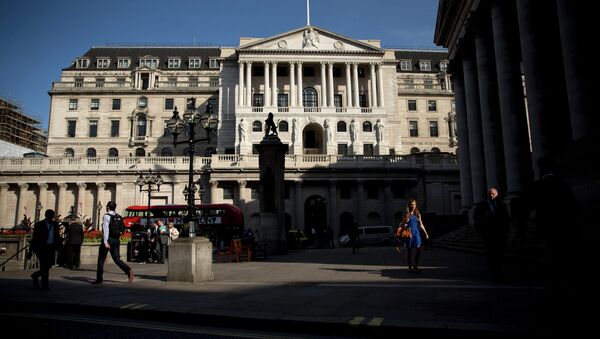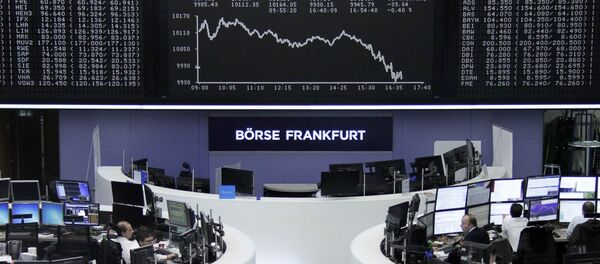However, while investors are prone to take into account warning signs of policy debate, there is still a fair amount of optimism regarding the economic prospects, billionaire investor Warren Buffett among them. This party is reiterating the highly-financialized model of debt-fueled growth has not yet run out of steam, even though the macro fundamentals are obviously deteriorating. Three scenarios are being discussed amongst investors and monetary authorities: a regulative revolution, the next global recession or the return to the normalcy of prosperity.
Mervyn King, representing the reformist-thinkers, stated in his recent publication only a shift of policy thinking and approach to regulation might help the advanced nations boost growth at home, eventually propelling the rest of world to regain growth sustainability.
"Without reform of the financial system, another crisis is certain, and the failure… to tackle the disequilibrium in the world economy makes it likely that it will come sooner rather than later," King wrote, analyzing his experience as the BoE head during the 2009 crisis.
Indeed, the currently sluggish economic growth and near-zero inflation in most advanced nations does not allow the regulators return their policies to normality in terms of base interest rates, resulting in newly emerging risks of bubbles in the overheating financial sectors, while the real economy suffers from disinvestment. King referred to the phenomenon as ‘the prisoner’s dilemma’ that central banks across the advanced world have been trapped in.
Mark Carney, having succeeded King as the BoE Governor in 2013, noted last week the ultra-loose monetary policies and the war of currency devaluations practiced by select nations in strife for international competitiveness of their economies reflect negatively on global growth prospects.
Meanwhile, as investors responded to the G20 summit of finance ministers quietly, due to the G20’s inability to lay out a sound plan to boost economic performance of the nations involved, there is still some optimism among market participants of the old and mostly dysfunctional growth model, the cornerstones of which have been laid in the early 1980s.
In particular, Warren Buffet, billionaire investor, said the negative commentary on the economic prospects in the US is mostly groundless.
“As a result of this negative drumbeat, many Americans now believe that their children will not live as well as they themselves do,” Buffett wrote on Saturday. “That view is dead wrong.”
Buffett’s Berkshire Hathaway Inc. is a huge enterprise, owning multiple businesses across most sectors of the US economy, from insurers (Geico) to railways (BNSF) to ketchup producer Heinz. Buffett spoke out in defense of corporate capitalism, even though the current declines in US corporate profits are an alarming sign possibly indicating a coming recession.
Yet, Buffett failed to provide any clues to the possible solution to the current economic stalemate plaguing growth in advanced economies, only touching upon US politics and climate change.
“America’s golden goose of commerce and innovation will continue to lay more and larger eggs,” the billionaire investor wrote.
Buffett’s reassuring message might indeed invoke some positive effect to the US financial markets in the short-term, yet, as structural issues remain unresolved, with monetary policies affecting growth negatively, and the governmental direct involvement in the economy has proven disastrous more often than not, the future policy debate is only starting. After all, the world is not yet in a recession, meaning a search for solutions would only properly commence when it is too late.





